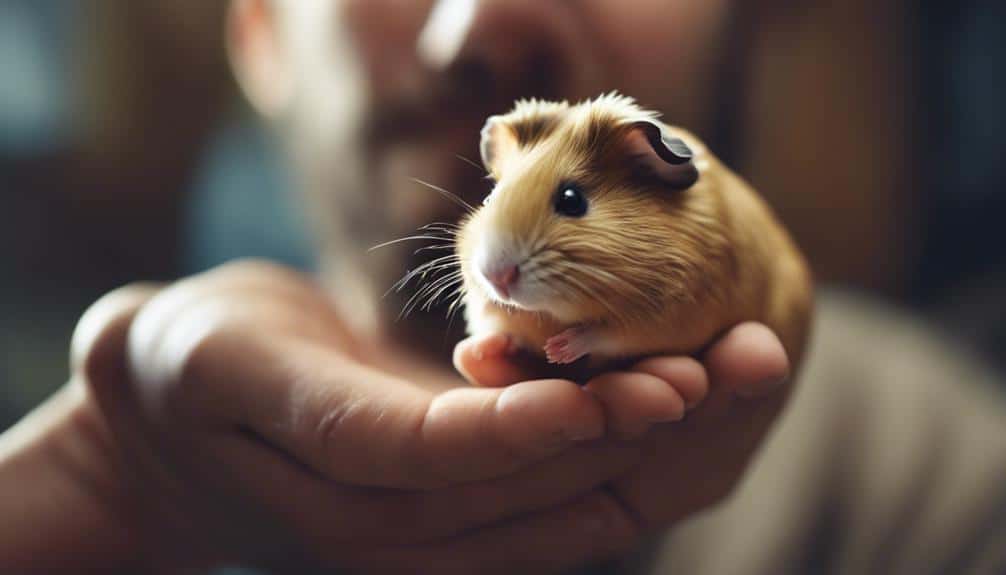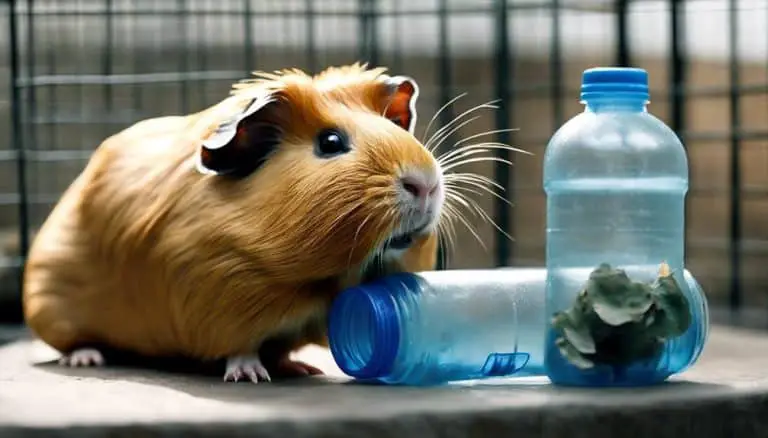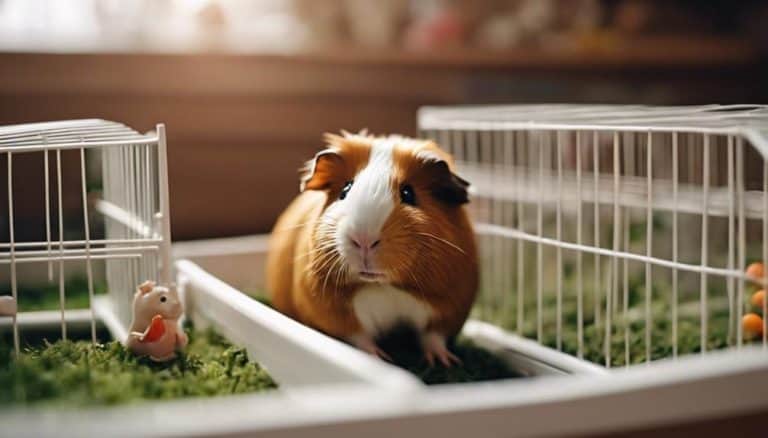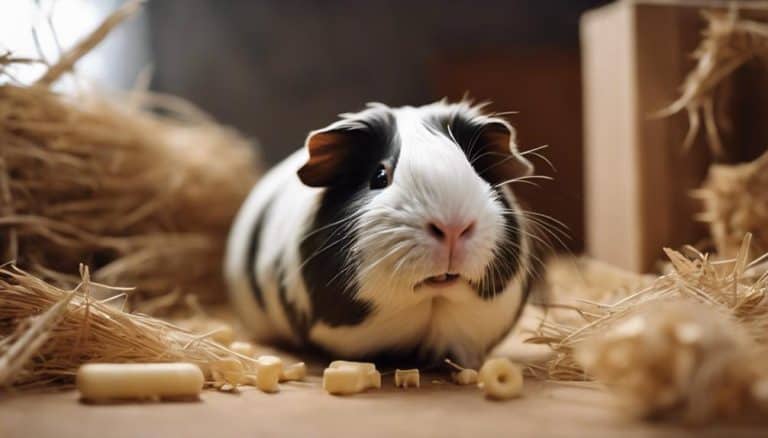How to Choose Between a Hamster and Guinea Pig
When it comes to deciding between a hamster and a guinea pig, it’s fascinating to note that guinea pigs have a longer lifespan compared to hamsters.
However, there are various factors to consider beyond longevity when choosing the right pet for your household. From social preferences to care requirements, each small animal brings its own set of considerations that can impact your daily life and overall enjoyment of pet ownership.
So, let’s explore the nuances of choosing between a hamster and a guinea pig to make a harmonious match for both you and your new furry friend.
Size and Appearance Comparison
When comparing the size and appearance of guinea pigs and hamsters, it’s evident that guinea pigs greatly outweigh hamsters in both weight and physical dimensions. Guinea pigs are notably larger, weighing 1.5 to 2.6 pounds, while hamsters weigh 1 to 10 ounces. A guinea pig can be 2 to 4 times bigger than a hamster, with guinea pigs being the size of a spud and hamsters the size of a strawberry.
The size difference between guinea pigs and hamsters is substantial, with guinea pigs requiring larger cages and more exercise space. Guinea pigs have a more potato-like appearance, while hamsters have a typical rodent-like look.
Lifespan and Health Considerations
Considering the lifespan discrepancies and potential health concerns between guinea pigs and hamsters, it’s important to carefully evaluate these factors before making a decision. Guinea pigs generally live longer, ranging from 5 to 7 years with some even reaching double digits, indicating a more extended commitment compared to hamsters, which typically live 2 to 3 years.
However, hamsters are prone to health issues like wet tail, a condition marked by diarrhea and often caused by stress, while guinea pigs are more susceptible to respiratory infections. To guarantee a healthy lifespan for both pets, regular vet check-ups and a proper diet are crucial. Monitoring for signs of illness, providing a clean living environment, and offering a balanced diet are key in preventing health issues.
When deciding between a guinea pig and a hamster, it’s essential to take into account not only the longevity of the pet but also the potential health risks associated with each species.
Sociability and Interaction Levels
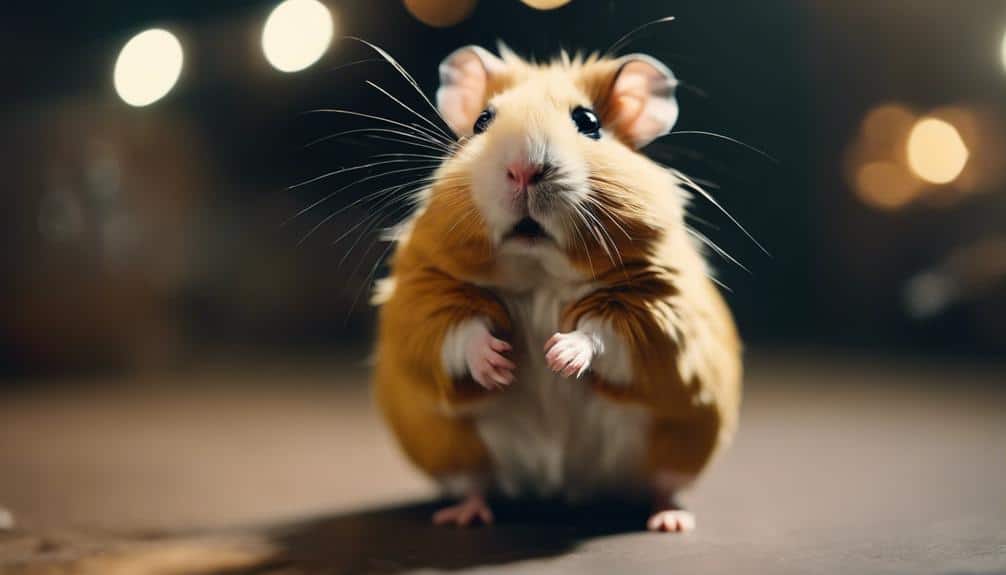
With differing social behaviors, guinea pigs and hamsters showcase distinct levels of interaction and sociability. When thinking about a pet, understanding their social needs is important for their well-being and your experience as an owner. Here are some key points to think about:
- Guinea pigs are social animals: They thrive on companionship and interaction with humans. Providing them with attention, playtime, and affection is essential for their happiness.
- Playing and vocalizing: Guinea pigs enjoy playing and vocalizing their needs, making them interactive and communicative pets that can form strong bonds with their owners.
- Solitary nature of hamsters: Hamsters are more solitary creatures and may take longer to build trust and bond with humans. They mightn’t seek out as much interaction as guinea pigs do.
- Pairs or groups for guinea pigs: Guinea pigs are recommended to be kept in pairs or groups to prevent loneliness and ensure their mental well-being. Having companions of their own kind is crucial for their social needs.
Understanding these differences in social behaviors can help you make an informed decision when choosing between a guinea pig and a hamster.
Noise, Sleeping Patterns, and Habits
To understand the differences in noise levels, sleeping patterns, and habits between hamsters and guinea pigs, it is essential to take into account their nocturnal and crepuscular behaviors. Hamsters, being nocturnal creatures, are most active during the evening and night, which may lead to potential disturbances if kept in bedrooms. On the other hand, guinea pigs are crepuscular, meaning they are most active during dawn and dusk, aligning better with human schedules. This difference in activity patterns can greatly impact your choice based on when you prefer to interact with your pet. Below is a comparison table highlighting key differences in noise, sleeping patterns, and habits between hamsters and guinea pigs:
| Aspect | Hamsters | Guinea Pigs |
|---|---|---|
| Nocturnal/Crepuscular | Nocturnal | Crepuscular |
| Active Times | Evening and Night | Dawn and Dusk |
| Potential Disturbance | May disturb sleep | Less likely to disturb sleep |
| Habit Alignment | More active when humans sleep | More aligned with human schedule |
Understanding these distinctions can aid in making an informed decision based on your lifestyle and preferences.
Care Requirements and Budget Evaluation
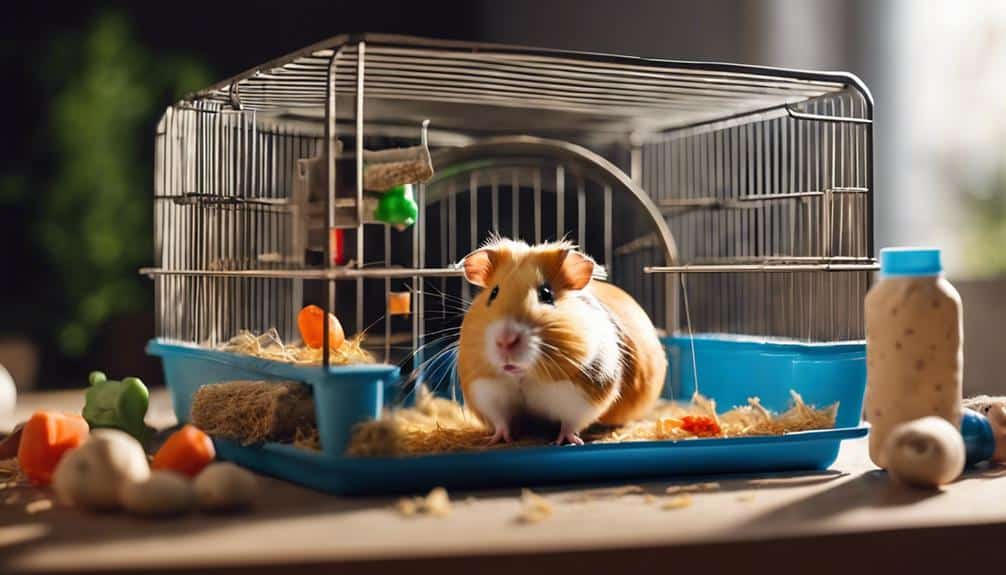
When evaluating the care requirements and budget for owning a hamster or guinea pig, it’s important to take into account factors such as living space, lifespan, and ongoing expenses. Here are some key considerations:
- Living Space: Guinea pigs require larger living spaces and more frequent cleaning compared to hamsters. Make sure you have enough room to accommodate the needs of either pet.
- Lifespan: Hamsters have a shorter lifespan of 2-3 years, making them a less long-term commitment than guinea pigs, which can live 5-7 years or even longer.
- Budget: Take into account the cost of food, bedding, and veterinary care for both hamsters and guinea pigs. Guinea pigs need daily fresh vegetables, which can impact the overall budget for their care.
- Space Availability: Evaluate the space availability in your home and the associated costs when deciding between a hamster and a guinea pig. Factor in the need for a larger cage for guinea pigs and the setup costs involved.
Taking these factors into consideration will help you make an informed decision based on your living situation and budget constraints.
Conclusion
To sum up, when choosing between a hamster and a guinea pig as a pet, consider the fact that guinea pigs have a longer lifespan of 4 to 8 years compared to hamsters’ 1 to 3 years. This statistic highlights the importance of long-term commitment and care when deciding on a pet.
Make sure to evaluate all factors such as size, social preferences, and budget before making your decision to create a happy and healthy relationship with your new furry friend.
